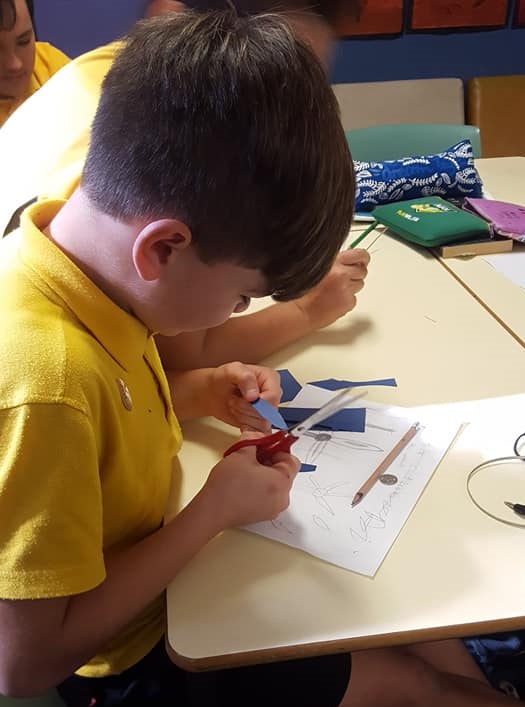The start of the mid-year uni break is the perfect time to relax after working your guts out for your exams…right? Nope! Not for the Engineers Without Borders Regioneering team anyway.
With a mission to redefine engineering, promote engineering awareness and facilitate interaction between regional school students and young engineering professionals, in June 2018 a team of Engineers Without Borders (EWB) volunteers set off on an action-packed journey around regional NSW.
We caught up with Zelia Chu, third year Chemical Engineering and Commerce Student, and Head of School Outreach at UNSW’s EWB Chapter, to find out more about the adventure:
What is Engineers Without Borders?
EWB is a not-for-profit global organisation that uses engineering to create social change in developing communities, internationally and locally in Australia. As a university chapter we run a few different activities, one of which is the School Outreach Program that focuses on engineering education for primary and high school students. For university students, the focus is more about introducing them to humanitarian engineering pathways and skills development within a humanitarian engineering context.
Regioneering sounds interesting, but what actually is it?
During semester, our school outreach educational workshops are mostly run in Sydney, but at the beginning of each semester break we run a week-long school outreach road trip around regional NSW – hence Regioneering. I work with schoolteachers and the University, through the Engineering Faculty’s USTEM outreach program, to plan the trip.
Where did you go and what impact did you have?
It was pretty intensive! Over five days in June we journeyed 1,200 kilometres and delivered a total of 120 workshops to over 2,000 students, from Year 3 to Year 12, at 16 primary and high schools around Port Macquarie, Coffs Harbour, Armidale, Tamworth and Newcastle.
Wow! That’s impressive. What happens during these workshops?
We present a case study that poses a real-life humanitarian engineering challenge, then invite students to become an “engineer for a day” by asking them to develop a solution to the challenge using their creativity and problem-solving skills.
What kind of challenge?
The context of one of the challenges is the Tonle Sap lake in Cambodia. Many people live alongside or near this large body of water which is subject to huge fluctuations during the rainy season. One of the solutions for this is building floating houses.
We demonstrate that engineers are problem solvers and creators with a broad range of skills who can improve the world and the lives of people in many different contexts.
Zelia Chu, UNSW Engineers Without Borders Vice President and Head of School Outreach
We give students a 15-minute presentation, then invite them to build a floating house using materials such as aluminium foil, cups, straws and balloons. Their job is to design and build a floating house that can hold as many people (i.e. marbles) as possible.
Once they’ve built and tested their designs we ask them to reflect on what they’ve learned. So, by the end of the workshop they’ve been through all the experiences an engineer has to go through: designing, prototyping, working in teams, dealing with deadlines and working with available materials etc.
So, the idea is to broaden their ideas about what an engineer does?
Exactly. We use case studies and activities to show that engineers are problem-solvers and creators with a broad range of skills who can improve the world and the lives of people in many different contexts.
What kind of feedback do you get?
Students and teachers are very enthusiastic to have us on board. Students, even the ones who are disengaged at first, end up getting really excited by the activity. We were asked many times, ‘When are you coming back?’, and in actual fact, we do try to visit the same schools on more than one Regioneering trip to build relationships and have a stronger impact.
It sounds like hard work, but is it fun?
It’s great being on the road with a bunch of other students who share a similar mindset to yourself. You get to inspire the next generation of engineers in addition to developing your own interpersonal and professional skills. There is a huge focus on problem-solving in engineering at university, but it’s mostly in a theoretical sense. In Regioneering you get to develop problem-solving skills in a practical way which is fulfilling and a lot of fun.
How can a student get involved in EWB?
We advertise all our social events and school outreach activities, which run regularly throughout semester, on our Facebook page, so that is the first place to visit. We also run other initiatives like Design Corner, which is like a hackathon which happens over a few days. We have also just initiated a series of on-site sustainable water and energy tours.
What would you say to someone considering getting involved?
I’d say, definitely do it. You’ll learn so much! As a school outreach presenter, you’ll have a big impact and build a great network of people who are passionate about making positive social change. EWB Australia also runs a Design Summit which is a great way to get exposure to some of the international opportunities available.
Join us on Facebook: https://www.facebook.com/ewbunswchapter/
